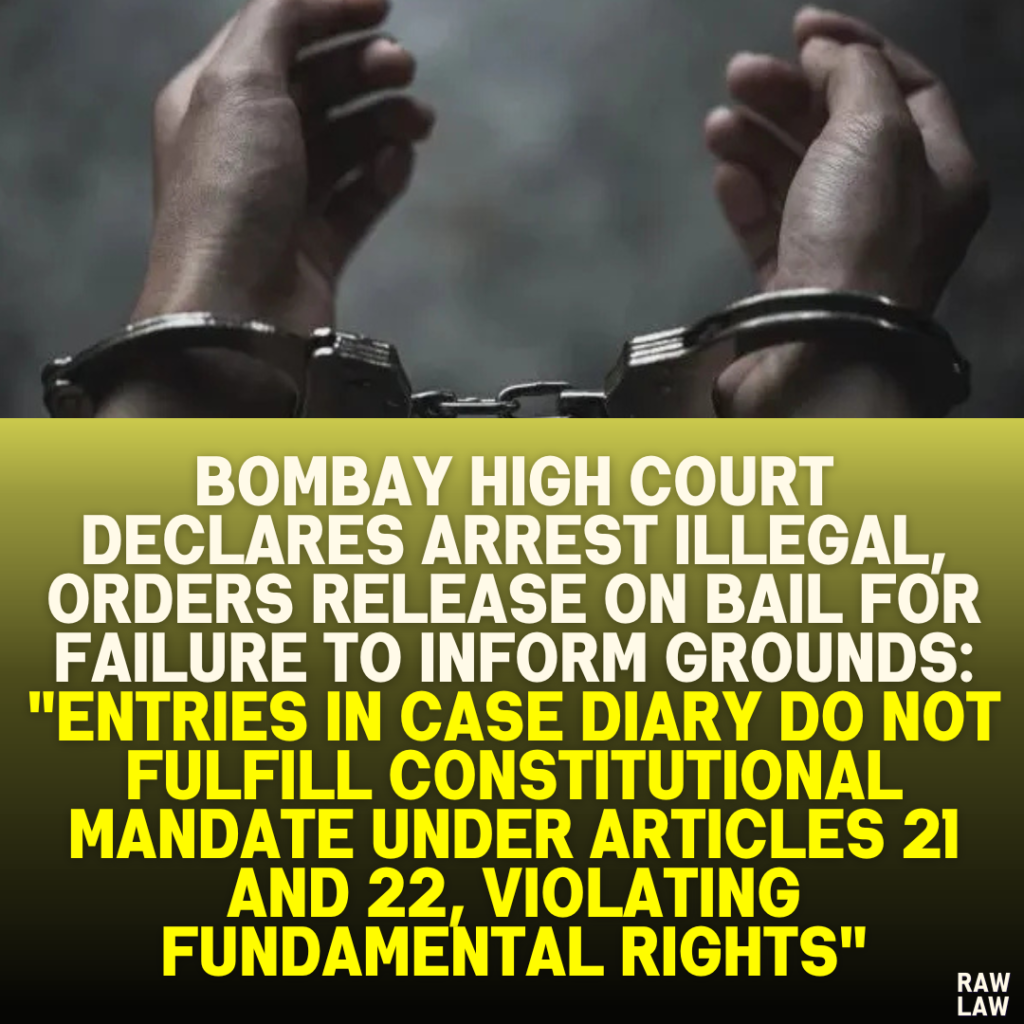Court’s Decision
The Bombay High Court declared the arrest of the petitioner illegal due to the failure of authorities to communicate the grounds for his detention. The court observed that this lack of communication is a violation of Articles 21 and 22 of the Constitution, which safeguard personal liberty and mandate that a detained person be informed of the reasons for their arrest. The court, relying on an earlier order related to a co-accused in the same case, directed the petitioner’s immediate release on bail, with specific conditions to be set by the trial court.
Facts
The petitioner was arrested on May 2, 2024, in connection with CR No. 258/2024 registered at Navghar Police Station. The petitioner argued that his arrest was unlawful, claiming that the grounds for his detention were not communicated to him, in breach of his constitutional rights.
Issues
The primary issue was whether the petitioner’s arrest could be deemed legal in the absence of communication regarding the grounds for his detention, as mandated by the Constitution.
Petitioner’s Arguments
The petitioner contended that his arrest was unconstitutional, as he was not informed of the grounds for his detention. His counsel cited a previous case involving the co-accused, where a similar issue was addressed by the court, leading to the co-accused’s release. The petitioner argued that his situation mirrored that of the co-accused and that the same relief should be extended to him.
Respondent’s Arguments
The state’s representative submitted an affidavit from the Assistant Police Inspector at Navghar Police Station but failed to demonstrate that the grounds for the petitioner’s arrest were communicated in compliance with legal requirements.
Analysis of the Law
The court emphasized the constitutional mandate under Articles 21 and 22, which require that the grounds of arrest be communicated promptly to a detainee. It noted that the absence of such communication constitutes a violation of personal liberty and due process, rendering the arrest invalid.
Precedent Analysis
The court referenced its prior decision in the case of the co-accused, wherein identical circumstances and issues were raised. The co-accused’s arrest had also been declared illegal due to a similar failure by the authorities to communicate the grounds for arrest. The judgment relied on past cases, including Pankaj Bansal and Mahesh Naik, underscoring that non-communication of arrest grounds is unconstitutional.
Court’s Reasoning
The court reasoned that the failure to inform the petitioner of his arrest grounds amounted to a severe constitutional breach. It highlighted that even if the case diary contained entries about the arrest, they did not constitute valid communication to the petitioner, thus failing to meet the legal standard required under Articles 21 and 22.
Conclusion
The court held that the petitioner’s arrest was illegal, mandating his immediate release on bail. The trial court was directed to set the bail conditions.
Implications
This judgment reinforces the constitutional requirement for law enforcement to communicate arrest grounds to detainees, highlighting the judiciary’s role in protecting fundamental rights. It serves as a reminder that procedural lapses in detention processes can lead to severe judicial consequences, upholding the rule of law and individual freedoms.
